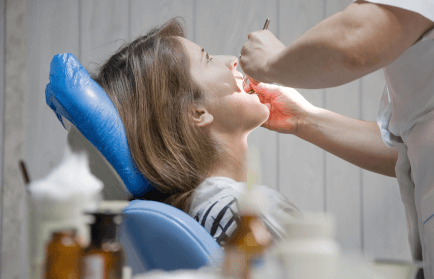Neuromuscular Dentistry
Neuromuscular dentistry is an innovative approach to oral healthcare that goes beyond traditional dental practices. By focusing on the complex relationship between teeth, jaw, and surrounding muscles, this discipline aims to achieve optimal oral health, function, and comfort. Here’s how neuromuscular dentistry is making a significant impact in everyday dental care.
Understanding Neuromuscular Dentistry
At its core, neuromuscular dentistry emphasizes the harmony between the jaw’s position, teeth alignment, and the surrounding muscles. This holistic approach considers not just the teeth but the entire system that supports oral function, ensuring a balance that promotes long-term health and well-being.
The principles of neuromuscular dentistry are straightforward yet transformative:
1. Relaxation of Jaw and Facial Muscles : Techniques like massage, acupuncture, or ultrasound are used to relax tense muscles, reducing discomfort and improving jaw function.
2. Proper Alignment : Orthotics, orthodontics, or restorative treatments are employed to achieve ideal alignment, preventing issues like uneven wear or TMJ disorders.
2. TMJ Management : Diagnosing and treating temporomandibular joint (TMJ) disorders, including pain, clicking, or locking, is a cornerstone of this practice.
Applications in Everyday Practice
Neuromuscular dentistry offers solutions for common dental and health concerns, making it an invaluable tool in routine dental care:
1. Headache and Migraine Relief : Many chronic headaches and migraines have dental origins. Identifying and addressing these root causes provides patients with lasting relief.
2. TMJ Pain Management : Using splints, mouth guards, or physical therapy, dentists can alleviate TMJ pain, enhancing patients' quality of life.
3. Dental Restorations : Restorations designed with neuromuscular principles ensure proper function and long-term success, aligning aesthetics with health.
3. Orthodontic Treatments : Neuromuscular-guided orthodontics helps achieve not just straighter teeth, but also better jaw alignment and overall balance.
4. Sleep Apnoea Solutions : Collaborating with physicians, dentists can address sleep apnea through oral appliances, improving both sleep quality and overall health.
The Benefits of Neuromuscular Dentistry
Adopting neuromuscular principles in practice offers significant advantages
1. Enhanced Oral Function : Improved ability to chew, speak, and swallow
2. Pain Relief : Reduction of TMJ pain, headaches, and related discomfort
3. Improved Aesthetics : A more balanced and natural facial appearance
4. Greater Patient Comfort : Anxiety and discomfort during procedures are minimized, creating a positive dental experience
Challenges and Future Directions
While the benefits are clear, integrating neuromuscular dentistry requires interdisciplinary collaboration, specialized training, and patient education. Dentists must work closely with healthcare providers and invest in advanced knowledge to fully implement these principles. In conclusion, neuromuscular dentistry is reshaping dental care by focusing on the bigger picture. By addressing underlying issues and enhancing oral function, it offers comprehensive solutions that improve patients' health, comfort, and confidence.


